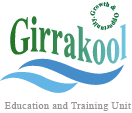15
SeptemberDid You Begin Rehab Websites For Ardour or Cash?
Introduction:
Alcohol withdrawal is a condition which occurs when individuals abruptly stop or significantly reduce their particular liquor intake after extended times of heavy drinking. It is a complex and possibly deadly problem that impacts many people globally. This report aims to offer an extensive breakdown of liquor detachment, including its signs, treatment plans, and management techniques.
Symptoms of Alcohol Withdrawal:
The onset and extent of alcoholic beverages withdrawal signs vary among people, depending on aspects including the quantity and length of time of drinking and a person's health. Typical medical indications include tremors, anxiety, frustration, sickness, vomiting, insomnia, increased heartrate, and sweating. In serious instances, people can experience hallucinations, seizures, or delirium tremens (DTs), a potentially deadly condition described as agitation, confusion, hallucinations, and fluctuating levels of consciousness.
Treatment Options:
Whenever coping with alcohol withdrawal, it is vital to get medical assistance and assistance. The primary goal of treatment solutions are to properly manage withdrawal symptoms, avert complications, and facilitate the change to sobriety. Medical experts can measure the extent of signs and determine the correct level of care. In moderate cases, outpatient therapy may be administered, while more serious situations may need hospitalization.
Medications popular in alcohol withdrawal therapy feature benzodiazepines, that really help lower anxiety, relieve signs, and steer clear of seizures. Other medicines such as for instance antipsychotics, anticonvulsants, and beta-blockers could be employed to handle specific symptoms or co-occurring conditions. Also, nutritional vitamin supplements, particularly thiamine (vitamin B1), are often recommended to prevent or treat potential inadequacies related to extortionate alcohol consumption.
Control Tips:
Besides medical treatments, various methods may be employed to manage alcohol withdrawal efficiently.
1. Supportive Care: Providing a supporting environment promotes a sense of security and convenience. This includes making sure proper nourishment, hydration, and rest, and keeping track of important signs and dealing with any health problems that'll take place during withdrawal.
2. Psychotherapy: looking for psychological state assistance, such as for instance counseling or psychotherapy, can play a vital role in addressing fundamental emotional or mental conditions that play a role in alcoholic beverages dependency. These treatments help individuals develop coping strategies, manage causes, and establish healthier choices to alcohol.
3. Rehabilitation products: Rehab jobs thailand participating in rehabilitation programs, like inpatient or outpatient treatment centers, can provide a structured and supportive environment for people looking for long-lasting data recovery. These programs usually incorporate health interventions, counseling, and peer assistance to address the actual, emotional, and social facets of alcoholic beverages addiction.
4. Follow-up Care: After doing preliminary detoxification and therapy, people should continue to look for continuous attention. This may involve taking part in support groups, going to regular treatment sessions, and receiving follow-up evaluations to make sure appropriate actual and mental health.
Conclusion:
Alcohol detachment is a difficult problem that will require medical assistance and comprehensive support. Knowing the signs, treatment options, and management techniques can significantly help with assisting people properly navigate the detachment process and achieve lasting data recovery. By giving proper care and sources, we could increase the results for everyone seeking to conquer alcohol addiction.

